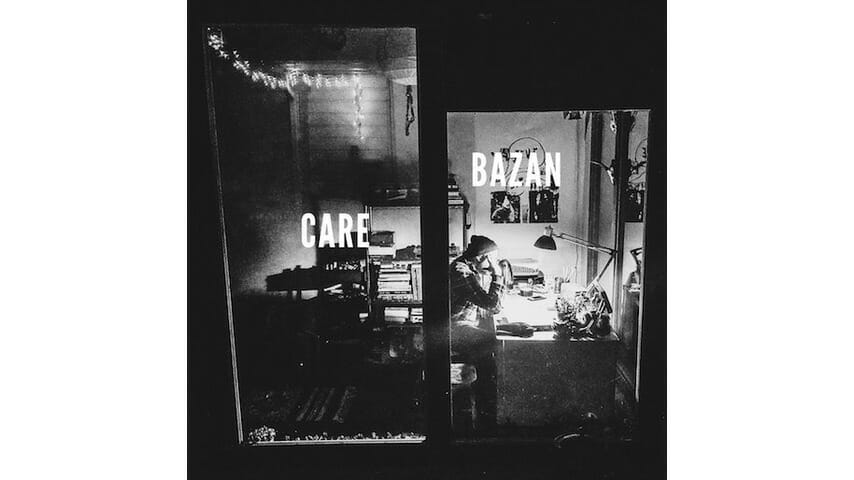
Throughout the synth-soaked invitational of Care, David Bazan continues to masterfully represent and wrestle with his Walt Whitman-esque “I contain multitudes” creative arc. Between the breath-close vocal performances and a sparse sonic palette of uncluttered keyboards and minimalist drum loops, fans of Bazan’s solo and band (Pedro the Lion, Headphones) catalog will find continuing strands of familiarity carrying through – most notably from his equally intimate solo releases from last year (Blanco and the holiday compilation Dark Sacred Night) and the electronic pulse of his 2005 Headphones album. While those artistic echoes pop up here and there throughout Care, the album showcases its individual genius through the bitingly fresh nuances found in Bazan’s instrumental, melodic and lyrical approaches.
One of Bazan’s true songwriting gifts is his deft ability to use penetrating storytelling to both convey universal themes and explore personal epiphanies. Whether he’s embodying a female character to ask the age-old question “Can men and women not be friends?” on the title track or self-reflectively inquiring “Do I enjoy the drugs I take?” on “Disappearing Ink,” his warm, measured delivery makes it hard to tell who exactly is asking the questions and who will benefit from the answers (if there even are any to be found). While Bazan has continued to strive for a state of unfiltered present-ness that may occasionally appear to clash with previous iterations of his perspectives, he seems entirely at peace with the brutal honesty of the sentiment – again echoing Whitman – “Do I contradict myself? Very well then I contradict myself.”
The album’s stark cover image of Bazan hunched head in hand over a lamp-lit desk as seen from another room is the pitch-perfect aesthetic to match the album’s lyrical and aural atmosphere. Simultaneously addressing relational connection and individual isolation, Care emphasizes that the inevitability of the latter is only tempered by the intentionality of the former. In other words, as Bazan sings late in the album, “Sometimes love isn’t all that it’s cracked up to be, keep trying.”
Thematically, the content and characters found within Care makes it feel like somewhat of a companion album to his 2002 Pedro the Lion album Control, albeit a familiar bedfellow from a parallel universe. Where Control dealt with a subject like infidelity in varied terms (“Oh my sweet rapture, I hear Jesus calling me home” and “Second best, oh I could learn to live with this”), Care speaks to the topic in far more compelling tones on its title track (“Stop romanticizing cheating, we are cowards everyone”). Bazan still examines the darker corners of relationships, parenthood, death and the like, but this time around he infuses a bit of hope and agency into the mix. It’s hard not to imagine there being a twinkle in his eye when he croons, “I might be down right now but nothing’s forever” on “Disappearing Ink.”
Care is bolstered by Bazan’s enlistment of indie-pop renaissance man Richard Swift as producer. Swift brings a marksman’s aim to the dialing in of the warble-and-wash synth tones and his experience as a musician (The Shins, The Arcs) and behind a mixing board (Guster, Damien Jurado) is readily felt in the album’s sturdy sonic framing. It never manages to smudge the ink of Bazan’s telltale signatures. Even the more embellished upbeat numbers like “Up All Night” and “Make Music” feel like they could easily be performed live by Bazan in a one-man band format without sacrificing any of the album’s subtleties.
Throughout Care, Bazan’s unforced invitation to lean in and listen closer is an ever-present request, one that reminds the listener that you can’t force intimacy but you can certainly fight for connection. Just “keep trying.”